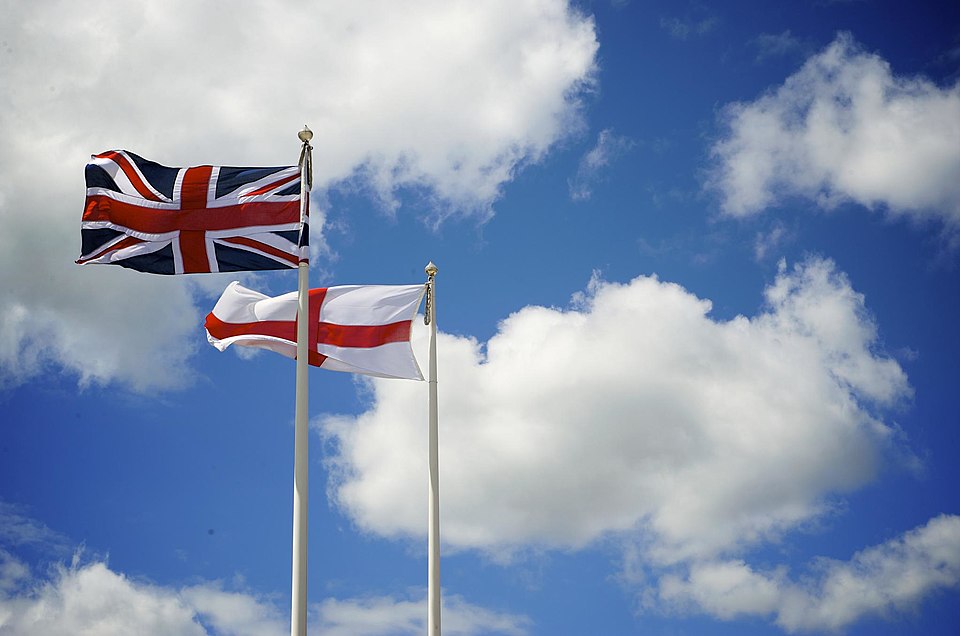
Lately, if you’ve been driving around parts of England, you’ve probably noticed something unusual: lampposts covered in Union Jacks and St George’s crosses. In places like Birmingham,
whole stretches of roads are lined with them—thousands fluttering in the wind.
In one Birmingham neighborhood, Weoley Castle, two men were spotted with a ladder and a bag full of flags. This wasn’t your standard DIY job—they were climbing lampposts and proudly hanging flags. When asked why, they said it was about “love, unity, and patriotism.” But they didn’t want to be filmed or interviewed, instead pointing reporters to a local café where donations and flags were being collected.
Normally, flags like these only go up for big occasions—royal celebrations, big sporting events, or military commemorations. So why are they suddenly everywhere now?
It all seems to have started in July, sparked by a story from Rugby, Warwickshire. A 12-year-old girl wasn’t allowed to give a school speech about being British while wearing a Union Jack dress during “culture day.” After backlash, the school apologized—but the moment had already struck a nerve. In Weoley Castle, locals responded by putting up flags in solidarity, and soon after, a group calling itself the Weoley Warriors was born.
The group describes itself as a bunch of proud English men determined to show pride in Britain’s history and spirit. They’ve raised nearly £14,000 through crowdfunding (supposedly just for flags, poles, and cable ties) and have a growing online presence, including a private Facebook group with over 1,600 members. Their motto online? “Operation Raise the Colours.”
But here’s where it gets complicated. Another group with the same phrase in its campaign has links to far-right movements, according to researchers. Although Weoley Warriors deny being political extremists, the overlap has made some locals uneasy.
On the streets, reactions are mixed. Some residents say the flags feel like pride and unity. Others say they feel more like intimidation, pointing out that both the Union Jack and St George’s Cross have been associated with far-right politics in the past.
But not everyone agrees. In nearby Kings Heath, a man told reporters that the flags didn’t feel patriotic at all—just “an excuse for xenophobia.”
Even local leaders are split. West Midlands Mayor Richard Parker says the flags are uplifting and a healthy sign of patriotism. Greater Manchester Mayor Andy Burnham worries they’re fueling division, especially with people spray-painting roundabouts and crossings with St George’s crosses. Councils in some places have started taking them down, citing safety concerns. That, in turn, sparked more anger, with some accusing councils of bias after Palestinian flags were left up longer in certain areas.
So what’s really going on? Some sociologists say it’s less about flags and more about frustration. When people feel ignored or silenced, they look for a way to be seen—and waving a flag from every lamppost is one way of making sure no one can ignore them.
Whether this fizzles out or becomes a new normal—like in parts of the US where flags are a permanent fixture—remains to be seen. For now, the flags are stirring pride, discomfort, and debate in equal measure. Photo by THOR, Wikimedia commons.







































